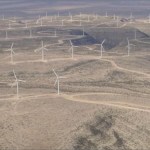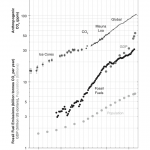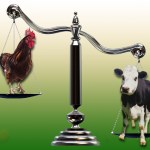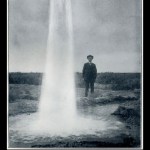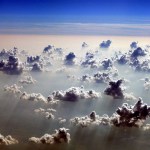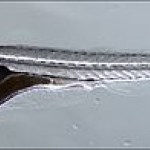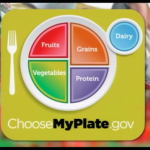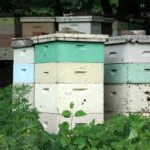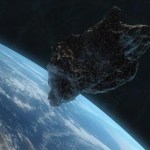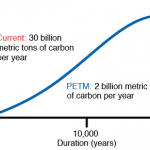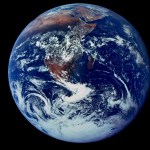I've been collecting information on this topic for a while, and yesterday, I sat down to write a post that would clarify the question of the impacts of windmills on bird populations. It turns out, however, that I was totally unsatisfied with the available data on everything from windmills to building strikes to cats, so instead I wrote a post making that very point: We really have no idea. This is an interesting and important problem, though, so it is worth having a conversation about.
The post is here: "How many birds are killed by windmills and other green energy projects?"
environment
Climate Smart & Energy Wise: Advancing Science Literacy, Knowledge, and Know-How by Mark McCaffrey is a book written primarily for teachers, to give them the information and tools they need to bring the topic of climate change effectively to their classrooms. It addresses the Climate Literacy and Energy Literacy frameworks, designed to guide teaching this important topic.
The book provides basics on climate and energy, approaches to teaching about climate and energy, and of special interest for teachers, syncing the topics with existing standards. The main point of the book is to get…
"Even if a small fraction of the Arctic carbon were released to the atmosphere, we’re fucked...We’re on a trajectory to an unmanageable heating scenario, and we need to get off it. We’re fucked at a certain point, right? It just becomes unmanageable. The climate dragon is being poked, and eventually the dragon becomes pissed off enough to trash the place."
- James Box
The climate crisis is serious, no doubt about it. Al Gore's An Inconvenient Truth from nearly a decade ago was a kind of rallying cry for the reality-based community but it appears that we might need another rallying cry as Gore…
Sorry about that, but posts and articles about climate change fiction seem especially prone to bad puns...
In any case, climate change fiction (or "cli-fi" to use the rather ugly short form) is fiction -- either speculative or realistic -- that takes as it's basis the fact that the earth's climate is changing and jumps off from there.
It's actually been around for quite a long time in various guises, even before it became obvious that anthropogenic global warming was an issue, with JG Ballard's The Wind from Nowhere and The Drowned World being perhaps the earliest modern examples. Not…
Do you know the real price of a piece of beef? Here is a nice, round number to chew on: The environmental cost of beef is ten times that of dairy, eggs or poultry. This means that if you chose to eat a steak over an omelet, (assuming they have equal amounts of protein) the ecological footprint of your meal will go from a size 5 to a size 50.
Drs. Ron Milo, Gidon Eshel, research students Alon Shepon and Tamar Makov realized that even though we might try to make the right choices in our diets, we’re likely to base them on the pronouncements of experts. The problem is that neither we nor they…
Last month, listening to NPR, I learned that Sacramento, California is struggling with the installation of water meters on homes. There were two things I learned, both ungood: 1) Sacramento was installing water meters on homes, meaning, that they hadn't been there all along. I found that astounding because water meters are the first line of defense in controlling water use. Charge people for the water and they'll pay attention to the drippy faucet, they'll be more likely to remember to turn off the sprinkler, maybe they'll think about investing in more efficient water-using appliances. Or…
The zombie plague was a dud. When the first cases emerged, scattered around the globe, everyone knew exactly how to put them down: destroy the brain. The world had been so saturated with zombie comic books, zombie TV shows, zombie novels, and zombie movies in the greatest, if unplanned, public health information program ever, that the responses to the outbreaks was always swift and thorough. In fact, most civilian casualties were caused not by the zombies themselves, but by the way everyone had been conditioned by the media to respond to lumbering, moaning, disheveled humanoid forms with…
Convective clouds forming over the Amazon in a blanket smoke. Image: Prof. Ilan Koren
Horse latitudes, doldrums, calms of Cancer and Capricorn: These are all synonymous names for the forsaken regions of the oceans that sailors of previous eras cursed because the winds that once pushed their sails die out there for weeks at a time. (One suggested explanation for the name “horse latitudes” is that some had to throw the horses overboard there when the supplies ran out.) On land, these subtropical belts – around 30-35° north and south of the equator – help form the world’s deserts.
These…
There are two very strong competing emotions at work here in this post: delight versus depression.
Depression that the government-funded research landscape here in Canada can sink so low that the premier freshwater research facility likely in the world is reduced to putting its hand out and asking for spare change just to fund its core research program.
But there's also a kind of delight in acknowledging that we've reached a place in the evolution of open public science that regular people like you and I can participate directly in making sure important research happens and continues to…
Image of a zebrafish larva from (NHGRI Press Photos).
Calcium is very important for the normal development, growth and survival of most vertebrates. Therefore, regulation of calcium intake and disposal is well-controlled. Mammals obtain most of their calcium from the diet, whereas fish obtain calcium by absorbing it from the external environment. For adults, this occurs in the gills and for larvae it is absorbed through the skin. What this means is that fish living in low calcium environments can acclimate by increasing the absorption of calcium from the water.
Dr. Kwong (Dept. of…
I recently wrote a post called "Did you ever wonder how you are going to die?" which was my response to a forum at the Humphrey Center, University of Minnesota, organized by the Union of Concerned Scientists called "Science, Democracy, and a Healthy Food Policy: How Citizens, Scientists, and Public Health Advocates Can Partner to Forge a Better Future".
It was a great forum, with sessions moderated by my friend Don Shelby, and including an absolutely excellent group of speakers and discussants. Every single one of the talks was excellent, and the panel discussions were amazing.
It is a…
Extremophiles are fun! Basically, they're the biggest, smallest, hardiest and definitely the oddest bunch of beasties to be found anywhere on this planet. The Palumbi father and son team -- one scientist and one writer -- bring us this fun little book on the extremophiles of the sea.
And literally, the book covers all the various sea creatures from the oldest to the smallest, to the ones that live in scalding hot conditions to those that live in the coldest conditions, so cold that the blood of normal creatures would freeze. We see the ones with the craziest migration patterns, the oddest…
Probably.
I want to start out by welcoming all you bee experts who think it is not the neonicotinoids, or that it is not so simple, to make your case in the comments. There is a great deal of controversy over what is causing bees to die off. That controversy even impinges on how we describe the thing we are talking about. Notice that I've not used the term "colony collapse disorder" because that is a term that may have been misused, or at least, that people who know stuff have noted has been used incorrectly thus mucking up the discussion.
Here's the thing. There is a bee crisis.…
“Most estimates of the mortality risk posed by asteroid impacts put it at about the same risk as flying in a commercial airliner. However, you have to remember that this is like the entire human race riding the plane — it is one of the few risks that really could wipe us all out.” -Nathan Myhrvold
Yes, it's easy to say that even though the risks of getting killed by an asteroid strike are low, the consequences of a major asteroid strike are simply too high for us to not address this threat.
Image credit: Don Davis.
But is that really true? This isn't pontificating; this is…
“It took less than an hour to make the atoms, a few hundred million years to make the stars and planets, but five billion years to make man!” -George Gamow
Whenever Earth Day comes around, I see a lot of different reactions from people. Some express their passion for the environment, others express disdain for the whole concept as a distraction. Some step up to act as responsible stewards of the world, while others fear nuclear accidents, asteroid strikes or climate change.
Image credit: NASA / Voyager 1. This (cropped) 1977 image is the first photo of the complete Earth and Moon in a single…
You know what is really impressing me about Neil deGrasse Tyson's Cosmos? That he doesn't hesitate to draw connections between science and how we live our lives — there is an implicit understanding that science has become fundamental to how we see the universe. Last night's episode was no exception. What started as an explanation for how we know the age of the earth (4.55 billion years), as established by the rigorous measurement of the ratio of lead to uranium in meteorites by Claire Patterson, became an exploration of health and the misuse of science, as personified by Robert Kehoe.…
One of the most important realizations of climate change research is exemplified in this graphic from Weather Uderground:
Caption from original: "Rate of temperature change today (red) and in the PETM (blue). Temperature rose steadily in the PETM due to the slow release of greenhouse gas (around 2 billion tons per year). Today, fossil fuel burning is leading to 30 billion tons of carbon released into the atmosphere every year, driving temperature up at an incredible rate.:
The point is this. The PETM (Paleocene-Eocene thermal maximum, millions of years ago) was a period of high levels of…
“There is no question that climate change is happening; the only arguable point is what part humans are playing in it.” -David Attenborough
If you had never heard of global warming before, how would you figure out whether it was happening, whether humans played a role, and what the magnitude of it was?
Image credit: NASA, Johnson Space Center, Apollo 17 crew.
Thankfully, we already have all of the scientific pieces in place, we just need for them to be put together in a way that we can understand it. What follows below is my attempt to do exactly that, with plenty of help from the…
“Ten percent of the big fish still remain. There are still some blue whales. There are still some krill in Antarctica. There are a few oysters in Chesapeake Bay. Half the coral reefs are still in pretty good shape, a jeweled belt around the middle of the planet. There’s still time, but not a lot, to turn things around.” -Sylvia Earle
Each and every weekend, I'm committed to bringing you a unique and wondrous story about the Universe, along with a song to take you through it. This weekend's song comes from Laura Veirs, who sings about the beauty of a little piece of the world at night in…
This is more than a policy. It is a philosophy.
